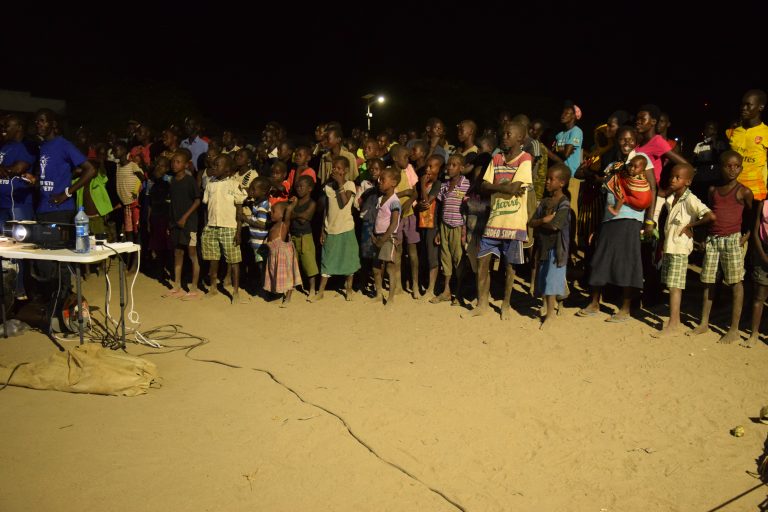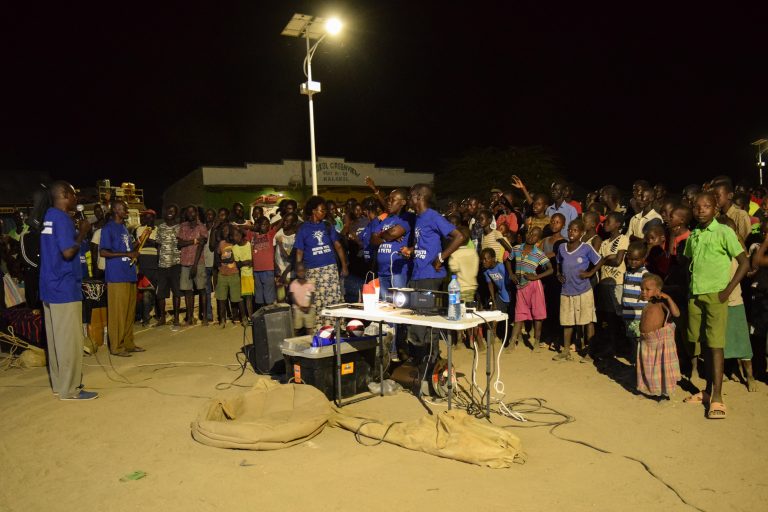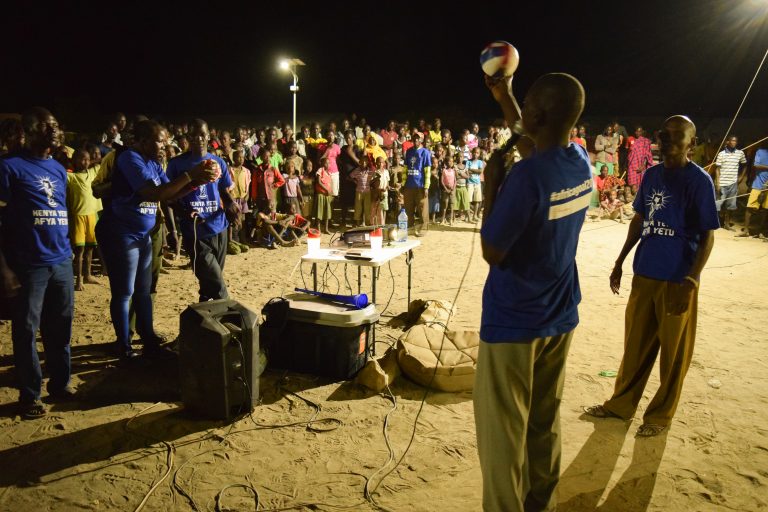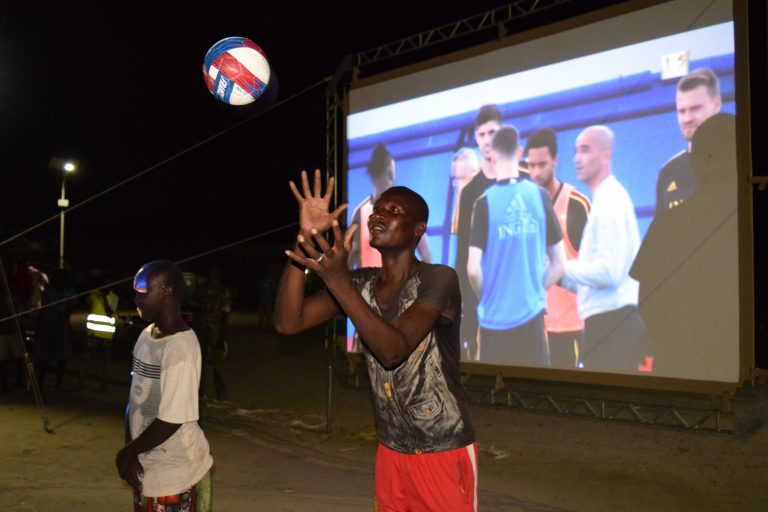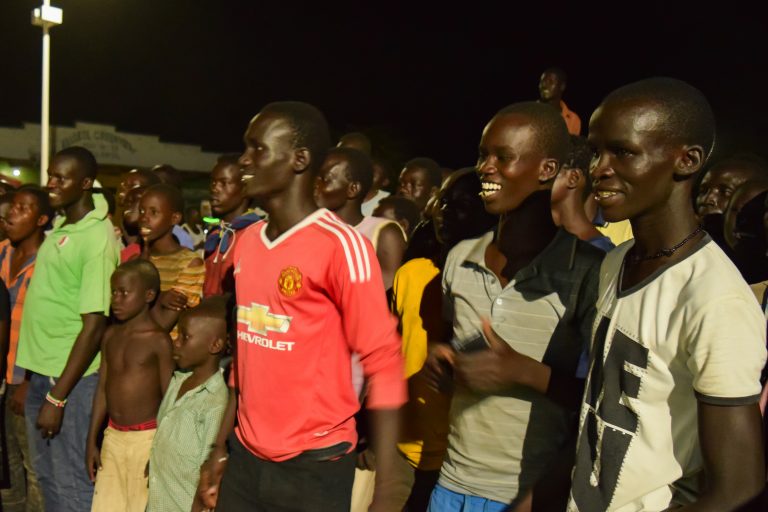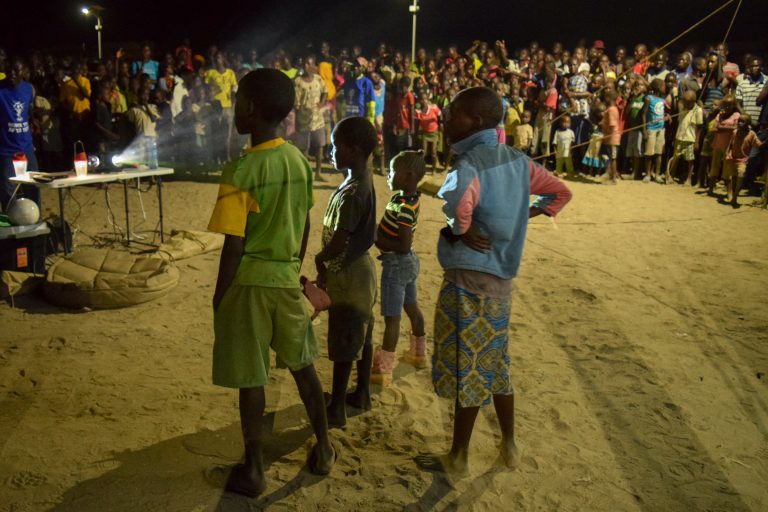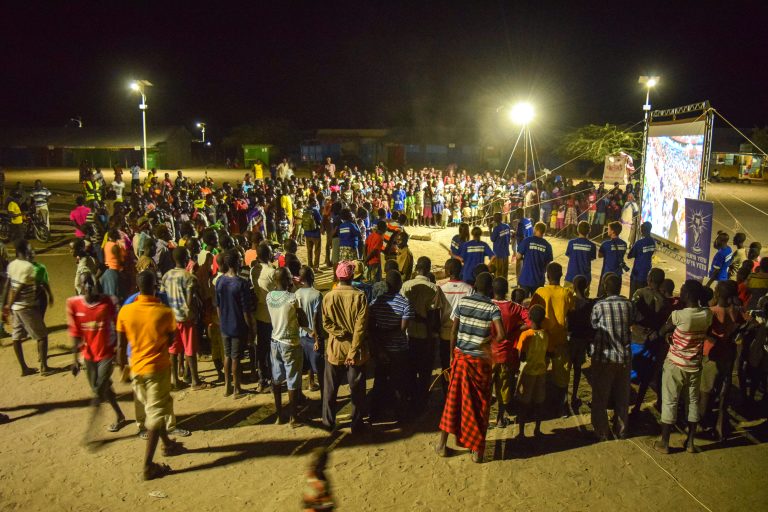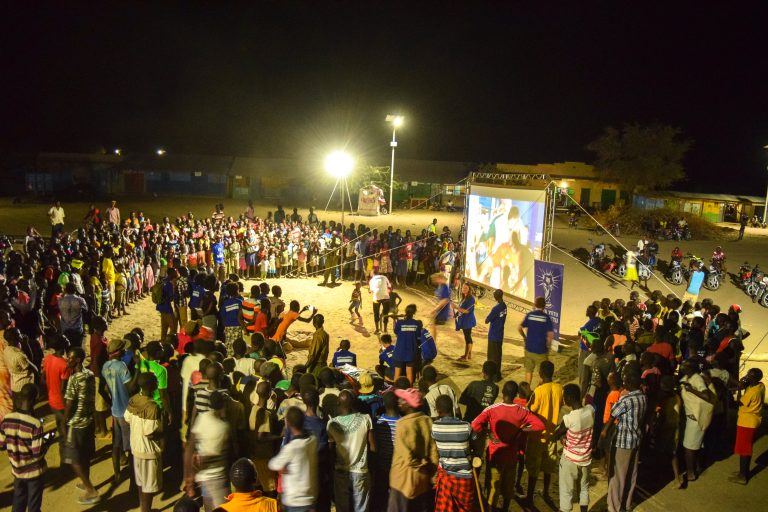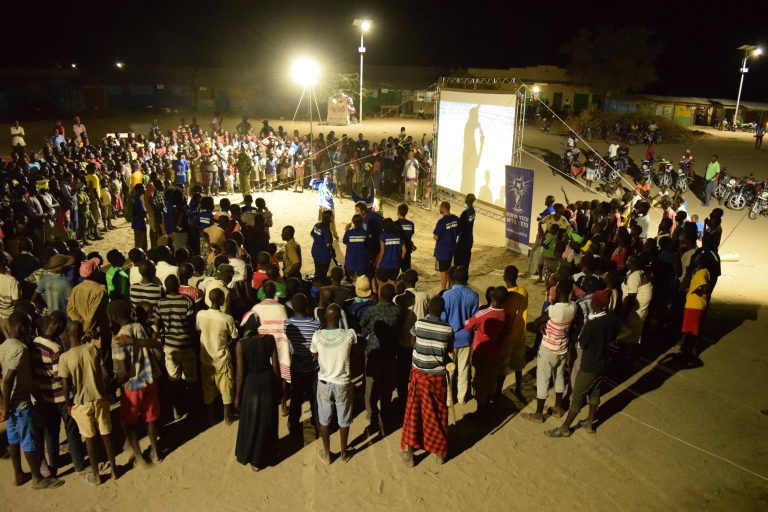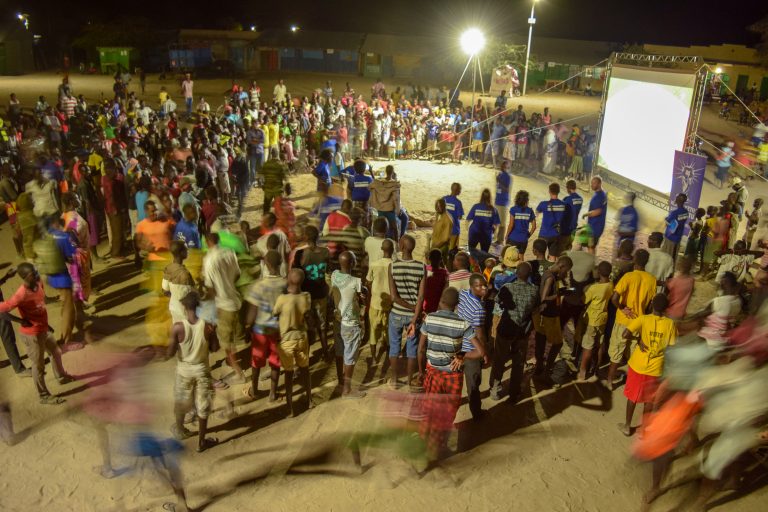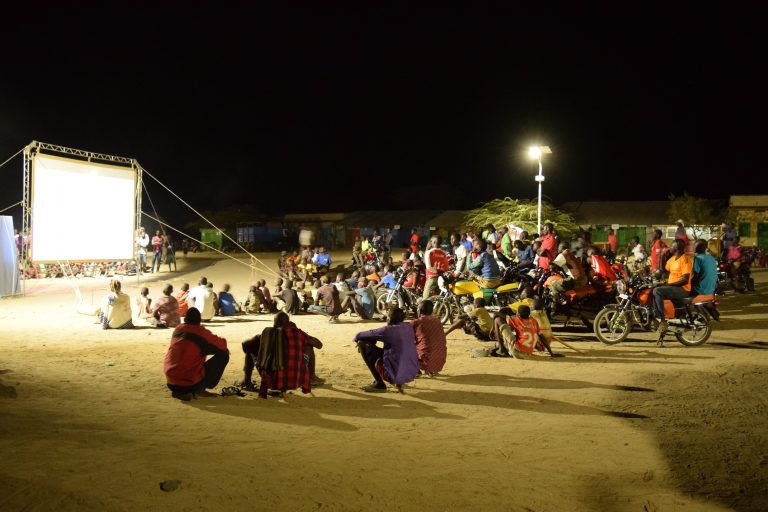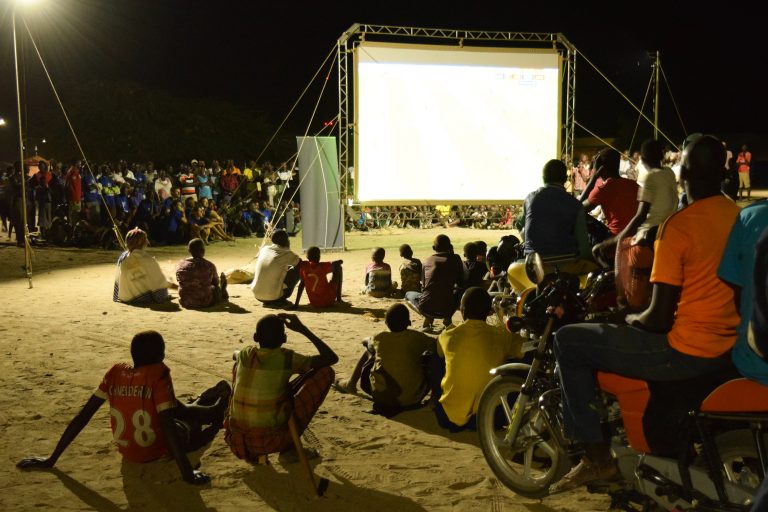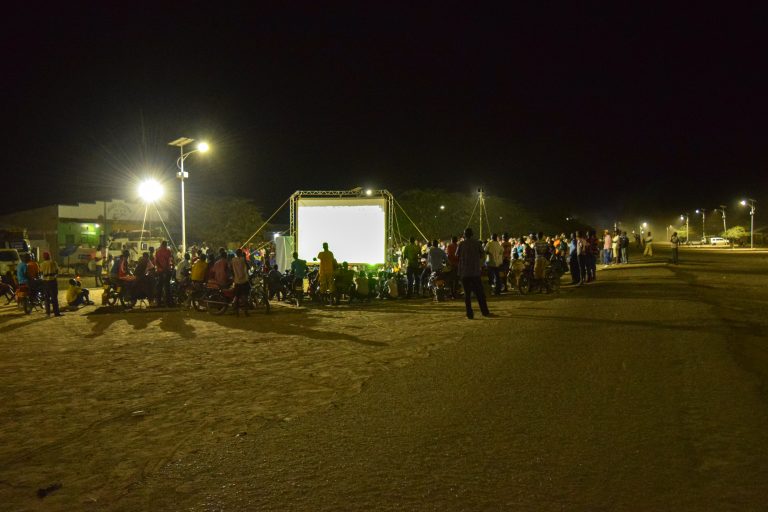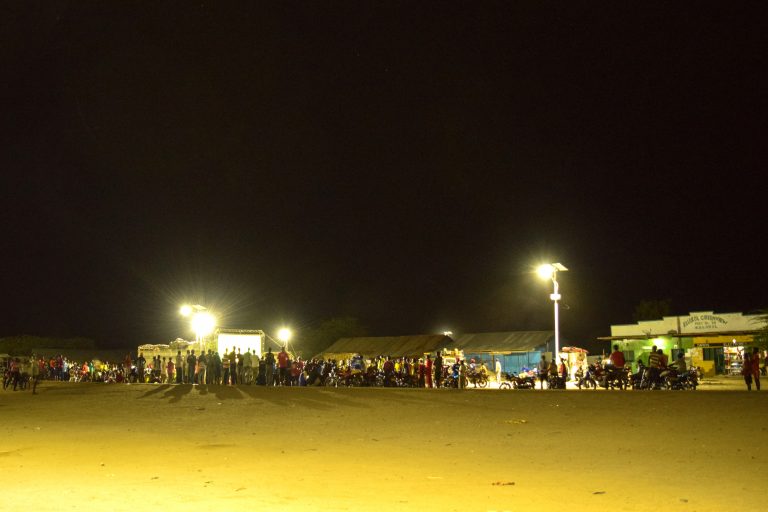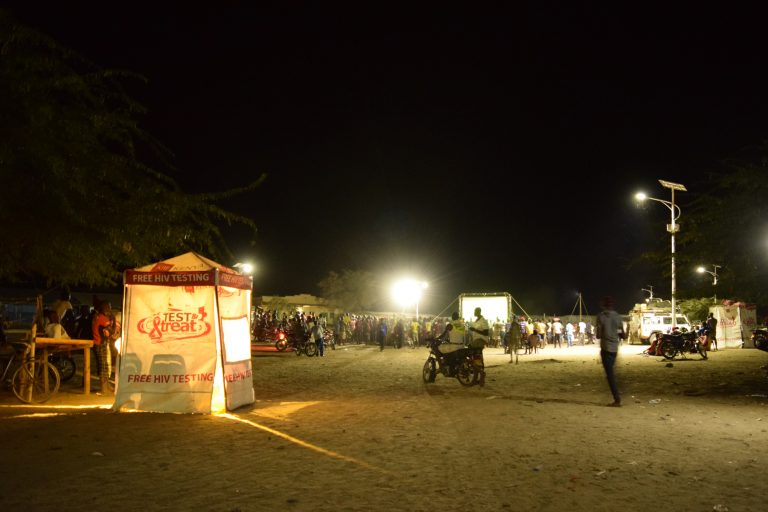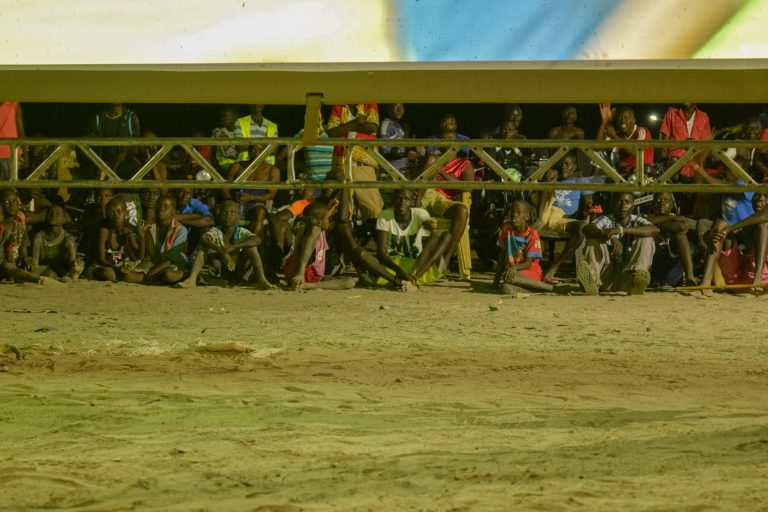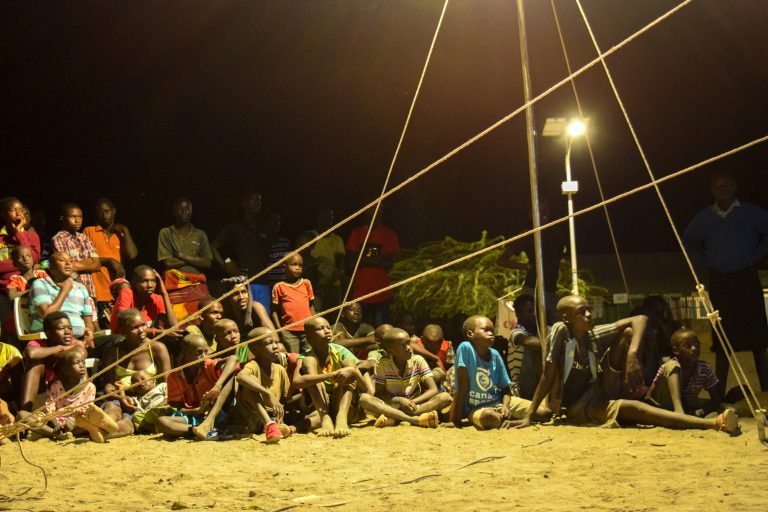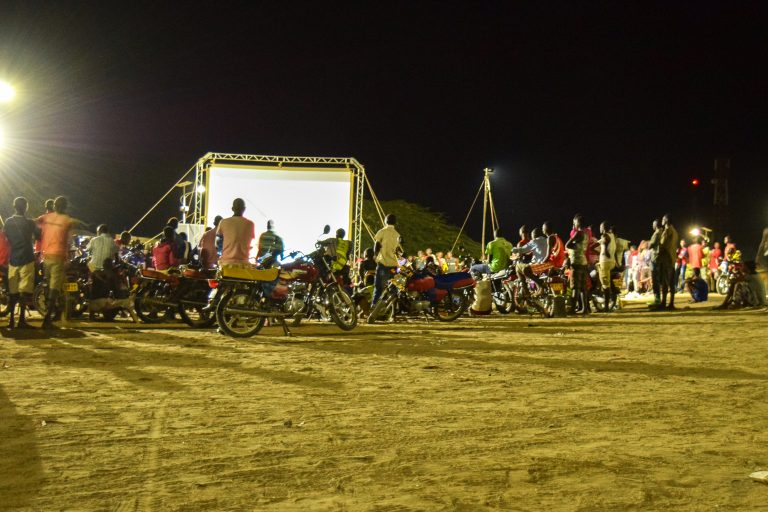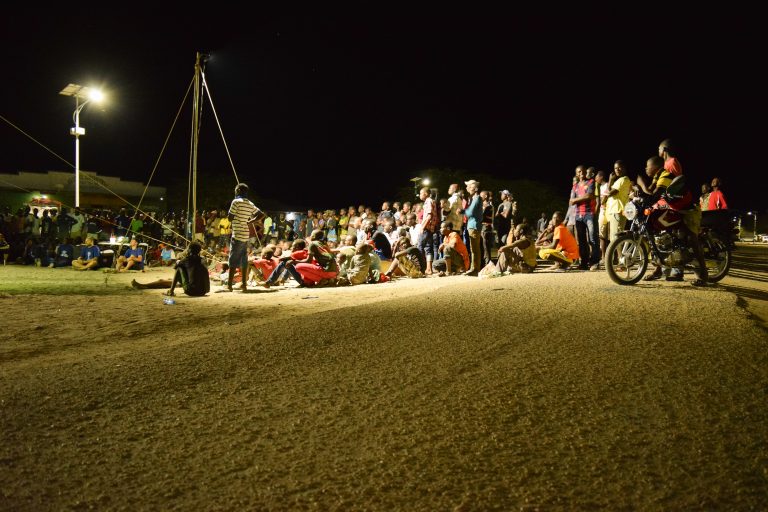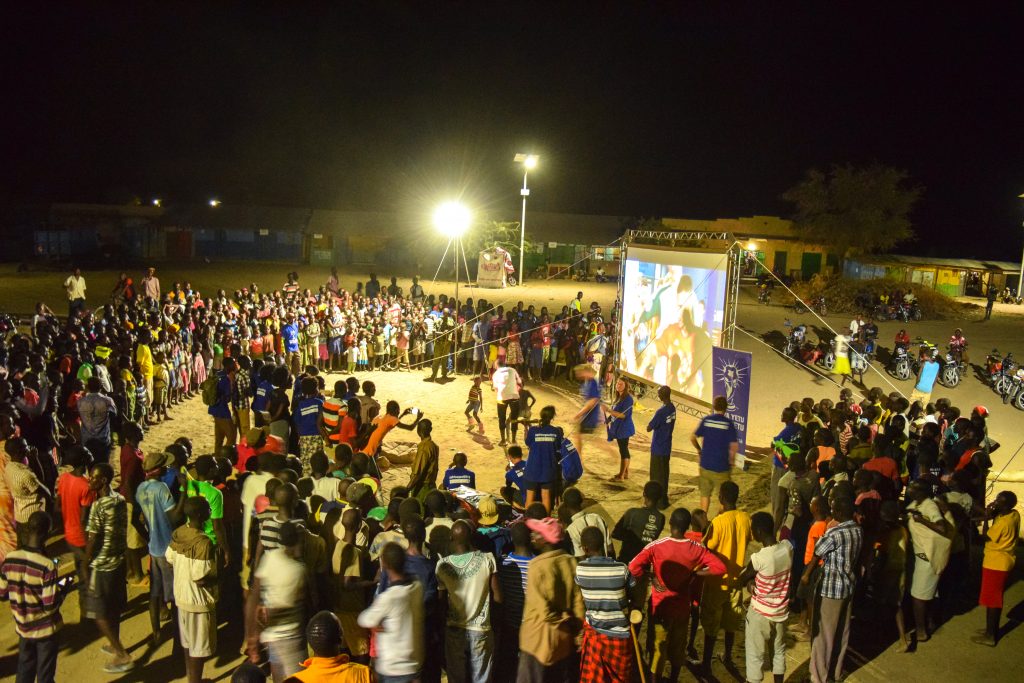

For the Belgium vs France semi-final game, we set up our screen next to the main road in the middle of Kalokol town centre. We were able to attract a good crowd of young males, a vital but hard to reach group in HIV prevention and a key target group for Africa Goal.
The event started with enthusiastic reactions to the HIV quiz, creating an energetic vibe with audience members excited to participate in the discussions. We even had couples who had gone for joint counseling and testing volunteering to speak about their experiences in front of the audience. Although the crowd was primarily made up of men, both men and women were encouraged to take part in the HIV quizzes, and young children were involved in easier quiz questions and dance-offs which were appreciated by a cheering crowd.
We had information bags containing HIV information booklets, posters, stickers, condoms and wristbands to distribute during the evening. However, as our partners started to circulate and distribute the packages, the situation became a bit hectic with everyone rushing forward to collect their bag. To prevent things from getting any more out of hand, we had to make the decision to distribute the bags through the community health workers the next day. Nevertheless we distributed a couple of bags to people hanging around at the very end of the evening, including some fish truck drivers who were very happy with there bags and immediately put them on their backs. The wristbands were also an instant success – jewelry is very popular amongst the Turkana people – the condoms were very much appreciated and the booklets were being read right away. Seeing the men collectively walk off with the Africa Goal bags with our slogan written on their backs was a great sight to end the evening.
Over the course of the match there was a queue of people at the HIV testing tents and, by the time we packed away, 60 people had been tested: 53 men and 7 women. Our partners were very pleased with the outcome – particularly the high proportion of men who accessed testing as men are notoriously hard to reach through conventional health service channels.

